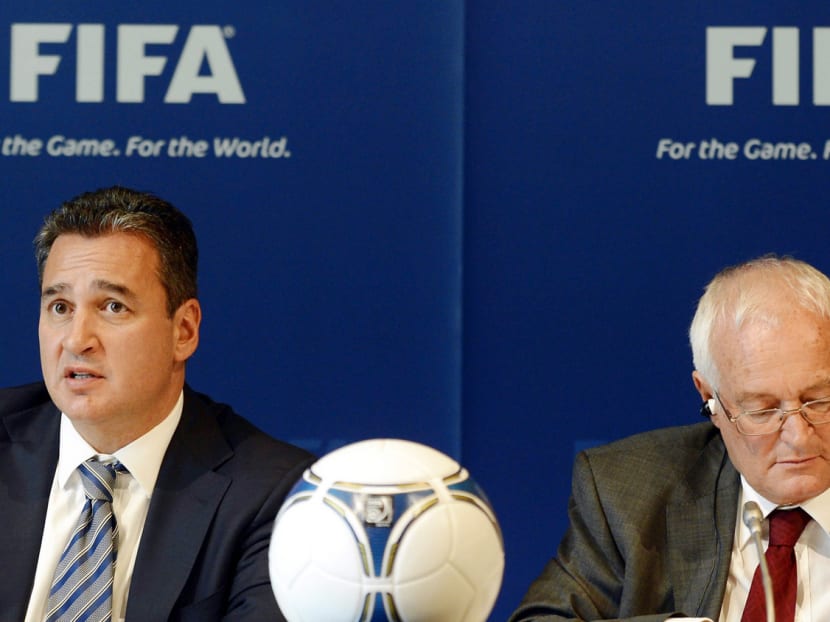Garcia resigns as FIFA prosecutor
GENEVA — The American lawyer who led the investigation into the 2018 and 2022 World Cup bid process resigned from the FIFA ethics committee yesterday (Dec 17) in protest over the handling of his findings.

FIFA ethics judge Hans-Joachim Eckert (right) has confirmed that his investigative counterpart Michael Garcia did not receive a copy of the 42-page statement before it was made public. PHOTO: AP
GENEVA — The American lawyer who led the investigation into the 2018 and 2022 World Cup bid process resigned from the FIFA ethics committee yesterday (Dec 17) in protest over the handling of his findings.
Michael Garcia cited a “lack of leadership” at the top of FIFA in a resignation statement. He also said he has lost confidence in the independence of his ethics committee colleague, German judge Joachim Eckert.
The former US Attorney quit a day after the FIFA appeals panel rejected his challenge of Eckert’s summary of the confidential 430-page investigation dossier.
Russia won the right to host the 2018 World Cup and Qatar was awarded the 2022 tournament.
Yesterday, Garcia claimed that Eckert misrepresented his work.
“(The) Eckert Decision made me lose confidence in the independence of the Adjudicatory Chamber, (but) it is the lack of leadership on these issues within FIFA that leads me to conclude that my role in this process is at an end,” Garcia wrote.
In his resignation statement, Garcia also questioned how FIFA can truly change after years of scandals and criticism.
“No independent governance committee, investigator, or arbitration panel can change the culture of an organisation,” Garcia wrote.
Garcia also revealed that the FIFA executive committee led by President Sepp Blatter tried to have disciplinary proceedings opened against him in September. The attempt was rejected by the chairman of FIFA’s disciplinary panel.
Garcia was appointed in July 2012 with the priority of probing the controversial 2018-2022 World Cup bidding contests. The investigation was designed to help reveal the willingness of Blatter’s organisation to confront some of its deep-rooted problems.
“For the first two years ... I felt that the ethics committee was making real progress in advancing ethics enforcement at FIFA,” Garcia wrote. “In recent months, that changed.”
Since Garcia and his investigation team submitted their work in early September, clear splits emerged between the prosecutor and the judge. Eckert has seemed closer to FIFA in his approach and belief in how the ethics panel could use its powers, much to Garcia’s increasingly obvious frustration.
Their working relationship was damaged by Eckert’s 42-page report published by FIFA last month which suggested that the World Cup bidding probe should be closed for lack of strong evidence of wrongdoing.
“(W)hen viewed in the context of the report it purported to summarise, no principled approach could justify the Eckert Decision’s edits, omissions, and additions,” Garcia wrote.
Eckert said any corrupt and rule-breaking acts were of limited scope and did not influence the result of the December 2010 votes of the FIFA executive committee.
Still, with Garcia’s work kept sealed against his wishes by strict FIFA Code of Ethics rules, critics and others have relied only on Eckert’s word about the evidence against Russia, Qatar and the seven other bid candidates.
“It now appears that, at least for the foreseeable future, the Eckert Decision will stand as the final word on the 2018/2022 FIFA World Cup bidding process,” Garcia wrote. AP





